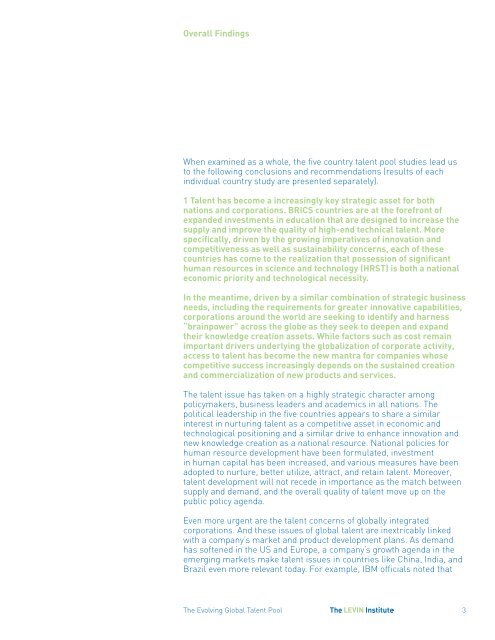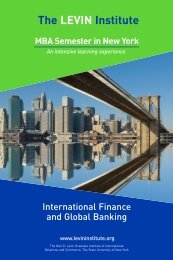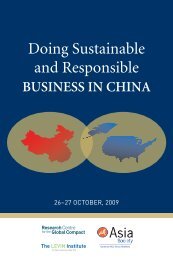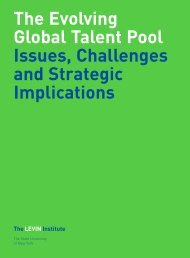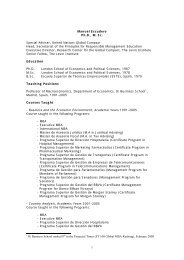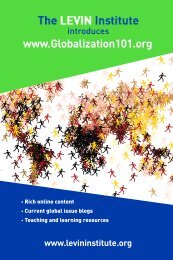The Evolving Global Talent Pool Lessons from the BRICS Countries
The Evolving Global Talent Pool Lessons from the BRICS Countries
The Evolving Global Talent Pool Lessons from the BRICS Countries
Create successful ePaper yourself
Turn your PDF publications into a flip-book with our unique Google optimized e-Paper software.
Overall Findings<br />
When examined as a whole, <strong>the</strong> five country talent pool studies lead us<br />
to <strong>the</strong> following conclusions and recommendations (results of each<br />
individual country study are presented separately).<br />
1 <strong>Talent</strong> has become a increasingly key strategic asset for both<br />
nations and corporations. <strong>BRICS</strong> countries are at <strong>the</strong> forefront of<br />
expanded investments in education that are designed to increase <strong>the</strong><br />
supply and improve <strong>the</strong> quality of high-end technical talent. More<br />
specifically, driven by <strong>the</strong> growing imperatives of innovation and<br />
competitiveness as well as sustainability concerns, each of <strong>the</strong>se<br />
countries has come to <strong>the</strong> realization that possession of significant<br />
human resources in science and technology (HRST) is both a national<br />
economic priority and technological necessity.<br />
In <strong>the</strong> meantime, driven by a similar combination of strategic business<br />
needs, including <strong>the</strong> requirements for greater innovative capabilities,<br />
corporations around <strong>the</strong> world are seeking to identify and harness<br />
“brainpower” across <strong>the</strong> globe as <strong>the</strong>y seek to deepen and expand<br />
<strong>the</strong>ir knowledge creation assets. While factors such as cost remain<br />
important drivers underlying <strong>the</strong> globalization of corporate activity,<br />
access to talent has become <strong>the</strong> new mantra for companies whose<br />
competitive success increasingly depends on <strong>the</strong> sustained creation<br />
and commercialization of new products and services.<br />
<strong>The</strong> talent issue has taken on a highly strategic character among<br />
policymakers, business leaders and academics in all nations. <strong>The</strong><br />
political leadership in <strong>the</strong> five countries appears to share a similar<br />
interest in nurturing talent as a competitive asset in economic and<br />
technological positioning and a similar drive to enhance innovation and<br />
new knowledge creation as a national resource. National policies for<br />
human resource development have been formulated, investment<br />
in human capital has been increased, and various measures have been<br />
adopted to nurture, better utilize, attract, and retain talent. Moreover,<br />
talent development will not recede in importance as <strong>the</strong> match between<br />
supply and demand, and <strong>the</strong> overall quality of talent move up on <strong>the</strong><br />
public policy agenda.<br />
Even more urgent are <strong>the</strong> talent concerns of globally integrated<br />
corporations. And <strong>the</strong>se issues of global talent are inextricably linked<br />
with a company’s market and product development plans. As demand<br />
has softened in <strong>the</strong> US and Europe, a company’s growth agenda in <strong>the</strong><br />
emerging markets make talent issues in countries like China, India, and<br />
Brazil even more relevant today. For example, IBM officials noted that<br />
<strong>The</strong> <strong>Evolving</strong> <strong>Global</strong> <strong>Talent</strong> <strong>Pool</strong><br />
3


